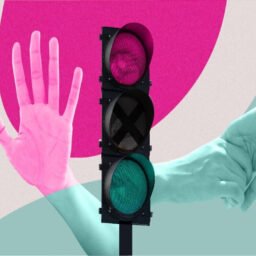INTRODUCTION
Around 35% of women in the world experience violence at some point in their lives. In an Indian study of nearly a thousand women, 26% said they had been physically abused by their spouses and in-laws at some point in their lives. According to according to NCRB report 2019, “A total of 4,05,861 cases of crime against women were registered during 2019, showing an increase of 7.3% over 2018 (3,78,236 cases). The majority of cases under crime against women under IPC were registered under ‘Cruelty by Husband or His Relatives’ which constitute 30.9% of the total crimes against women.”
Section 498A was adopted in year 1983 with the intent to save the woman against the Cruelty that they are being exposed to in their matrimonial home. It was introduced in the year 1983, as a part of the Criminal Law (Amendment) Act, 1983. But in recent times it is often claimed that Section 498A of IPC is mostly misused than used. Because of this Section 498A is losing its true credibility.
SECTION 498A OF THE IPC
“Husband or relative of the husband of a woman subjecting her to cruelty:
Whoever, being the husband or the relative of the husband of a woman, subjects such own to cruelty shall be punished with imprisonment for a term which may extend to three years and shall also be liable to fine.
Explanation: –
For the purpose of this section, ‘cruelty’ means –
- any willful conduct which is of such a nature as is likely to drive the woman to commit suicide or to cause grave injury or danger to life, limb, or health (whether mental or physical) of the woman; or
- harassment of the woman where such harassment is intending to coerce her or any person related to her to meet any unlawful demand for any property or valuable security or is on account of failure by her or any person related to her to meet such demand.”[1]
To file a case under Section 498A of IPC, the following conditions must be satisfied:
- The woman who is a victim must be married,
- The women must be exposed to Cruelty and Harassment and,
- The Cruelty or Harassment must be from her husband or his relatives.
TIME UNTIL WHEN THE CASE CAN BE FILED
The woman who is the victim can file a case under section 498A of the IPC within three years from the last incident of Cruelty occurred.
MISUSE OF SECTION 498A OF THE IPC
The main theme of lawmakers in inserting Section 498A of IPC into the existing law is to protect women from the Cruelty that they are being exposed to in between the four walls in her matrimonial home. But instead of using it as a shield, some women using it as a weapon against her husband and in-laws. These days as most of the women are educated and well known about the laws, the scope of using it illegally and dishonestly also increased. This is evident by the fact that most of the cases which were filed under section 498A of IPC have resulted in acquittal. As the offences under this section are Cognizable, non-bailable, and non-compoundable, the woman with a deceitful intention is using it to blackmail her husband and in-laws. In some cases, even the relatives who were residing in another country Number of false allegations under Section 498A of IPC increased drastically in the recent decades.[2]
It is obvious that Women should get special protection from harassment in their matrimonial homes. But coming to the case of false allegations, innocent people are being arrested without any proper investigation. Arresting a person would lower his reputation in society and leaves permanent scars on their life. Because of the false allegations and unethical use of Section 498A of IPC, the husband and his family members are suffering a lot. In this case, the law must exercise its authority by conducting a comprehensive investigation and cross-examination of the entire case fairly.
In the Arnesh Kumar v State of Bihar case[3], the Supreme Court entrusted the following directions concerning the arrest of the accused:
- A checklist comprising of detailed sub-clauses under section 41(A) to be given to all police officers.
- While producing the accused in the presence of a magistrate for further detention, the police must properly file the checklist and provide the causes which made the arrest compulsory.
- The magistrate must thoroughly examine the report submitted by the police officer while approving detention; he can approve detention only after filing its contentment.
- Within two weeks after the institution of the case, the decision not to arrest the accused be conveyed to the Magistrate along with a copy to the Magistrate, which may be enhanced by the District SP for causes to be put down in writing.
- The accused must be provided with a notice of appearance under Section 41A of the Criminal Procedure Code within two weeks from the date on which the case instituted, which can be further enhanced by the District SP for causes to be put down in writing.
- Failing to obey the aforementioned directives will subject the police officers involved to departmental action as well as a charge of contempt of court, which will be brought before the High Court with territorial jurisdiction.
- Validating detention without noting the causes issued by the judicial Magistrate in question will be subject to departmental action by the relevant High Court.[4]
CONCLUSION AND SUGESSIONS
Keeping the instances of false allegations in view, there should some changes in the legal procedure in order to protect innocent people from being arrested. There should be a speedy trial in these cases so that the innocent husbands trapped in these cases receive prompt redressal. The offences under Section 498A should be bailable to prevent the innocent spouse and his in-laws from suffering in the custody. The Court should begin enforcing penalties and severe measures against those who make false allegations because due to the lack of this provision cases under section 498A of IPC are rising at an alarming rate.
And we can conclude that Section 498A of the IPC is instigated with the sole purpose to shield women from the cruelty of her spouse and in-laws. But this provision is being criticized in recent times because some wives being cruel using the law in their favour to harass their husbands and in-laws. This is the reason why Section 498A of IPC is often considered as “Anti-male Law”. So certain legal steps have to be followed to prevent the growth of “Legal Terrorism”[5] caused by using the provisions of the law illegally and dishonestly.
Author(s) Name: Kethana Tamminaina (Student, Damodaram Sanjivayya National Law University, Visakhapatnam)
References:
[1] Indian Penal Code, s 498A
[2] Lawrence Gomes, ‘Section 498A of IPC: Its implication and viabilities in our present day daily life and socio-economic system’, [2004] Cr LJ Journal Section 11
[3] [2014] 8 SCC 273
[4] Preeti Pratishruti Dash, ‘Revisiting Section 498A of IPC: Examining the Supreme Court’s Approach in Arnesh Kumar’ (2016) 10 NUALS LJ 45
[5] B Suresh Kumar Shetty and Jagadish PP Rao and Aditi Suresh Shetty, ‘Legal Terrorism in Domestic Violence – An Indian Outlook’ (2012) 80 Medico-Legal J 33
















